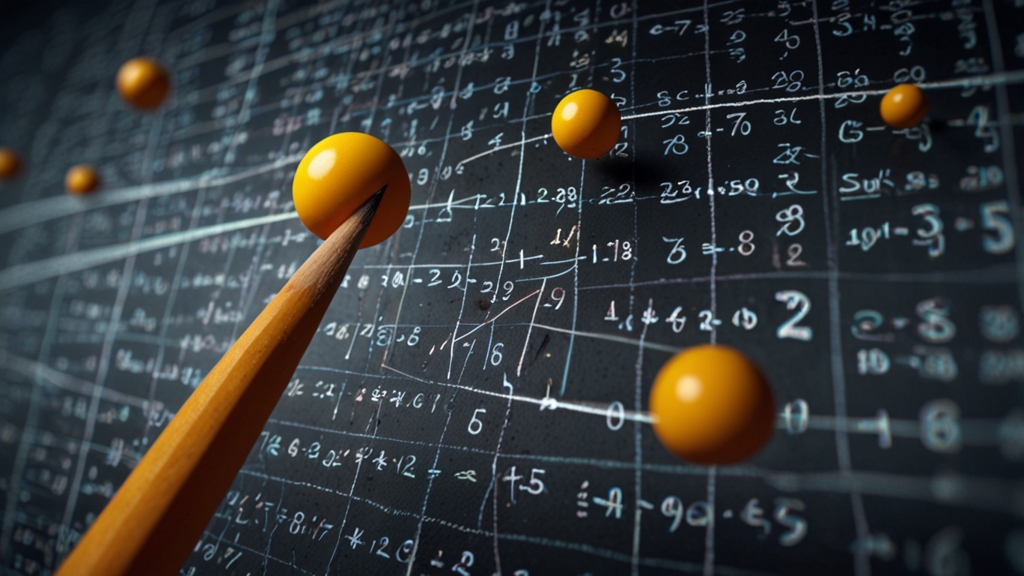The Role of Mathematics in Groundbreaking Scientific Discoveries
Mathematics has always been the cornerstone of scientific inquiry, providing the language and tools necessary to unravel the mysteries of the natural world. Its significance spans across various fields, as it offers a framework for understanding complex phenomena, formulating theories, and validating experimental results. From the elegance of Newtonian mechanics to the perplexities of quantum mechanics, mathematics continues to play a pivotal role in groundbreaking scientific discoveries.
The Universal Language of Science
In the realm of scientific exploration, mathematics serves as a universal language. Scientists from different disciplines and parts of the world can communicate their findings and theories using mathematical expressions, which transcend linguistic and cultural barriers. This universality is crucial for collaborative efforts in research, where interdisciplinary approaches often lead to significant breakthroughs.
Physics and Mathematics: An Unbreakable Bond
Perhaps no other field exemplifies the indispensable role of mathematics in scientific progress better than physics. The development of classical mechanics by Isaac Newton was not only a triumph of physical intuition but also of mathematical ingenuity. Newton's invention of calculus provided the tools needed to describe motion and change mathematically, laying the groundwork for modern physics.
"The laws of nature are but the mathematical thoughts of God." — Euclid
In the 20th century, Albert Einstein’s theory of relativity revolutionized our understanding of space, time, and gravity. The equations that form the backbone of general relativity are deeply rooted in differential geometry and tensor calculus. Without the sophisticated mathematical structures, the conceptual leap Einstein made would have been impossible. Similarly, quantum mechanics relies heavily on linear algebra and complex numbers to describe the probabilistic nature of particles at the atomic and subatomic levels.
The Biological Sciences: Numbers in Nature
Mathematics is not confined to the physical sciences; it plays a crucial role in understanding biological processes as well. The field of genetics, for example, has benefited immensely from mathematical models. The Hardy-Weinberg equilibrium provides a mathematical framework for understanding allele frequencies in populations, while statistical methods are fundamental in analyzing genetic variations and their relation to diseases.
Moreover, mathematical models in epidemiology enable the prediction and control of infectious diseases. The SIR (Susceptible, Infected, Recovered) model, which uses differential equations, helps in understanding the dynamics of disease spread and the impact of interventions like vaccination and quarantine. These models have proven invaluable in combating outbreaks such as the COVID-19 pandemic.
"In science, there is only physics; all the rest is stamp collecting." — Ernest Rutherford
Mathematics in Emerging Technologies
Emerging technologies such as artificial intelligence (AI) and machine learning (ML) are also heavily reliant on mathematics. Algorithms that power AI and ML are based on advanced mathematical concepts like probability, statistics, and optimization. These algorithms enable computers to learn from data, make predictions, and even engage in complex decision-making processes.
Furthermore, mathematics is integral to cryptography, the science of securing communication. Modern encryption schemes, which protect our data and transactions online, are built upon number theory and abstract algebra. Thus, mathematics ensures not only the advancement of technology but also its security and reliability.
Conclusion
The role of mathematics in scientific discoveries is both foundational and transformative. It provides the theoretical underpinning and analytical tools necessary for scientific advancement. Whether exploring the vastness of the cosmos, the intricacies of biological systems, or the frontiers of artificial intelligence, mathematics remains an indispensable ally in our quest for knowledge. As we continue to push the boundaries of what is known, the language of numbers will undoubtedly lead the way.










